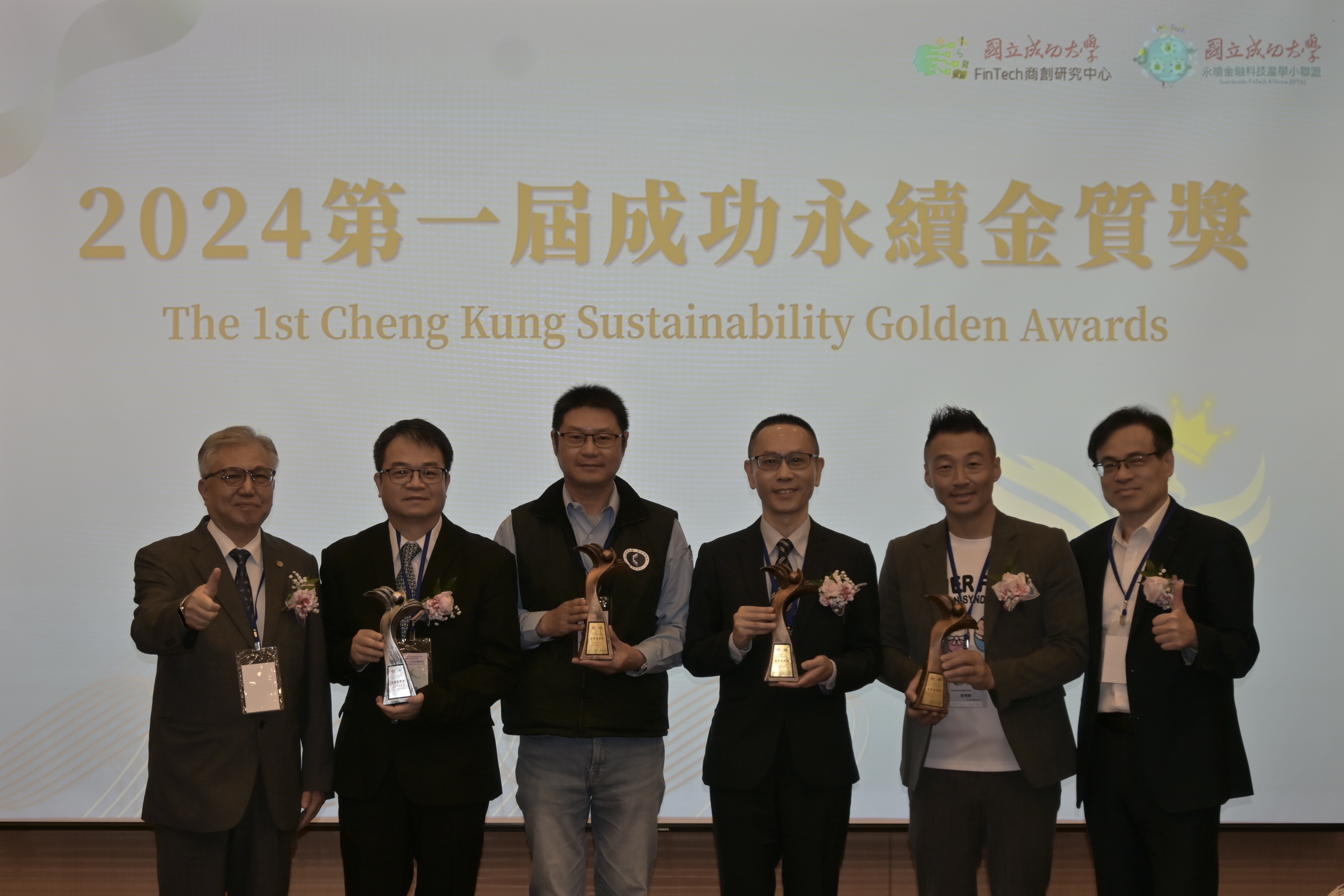Inaugural “Cheng Kung Sustainability Golden Awards” Grandly Launched: NCKU Collaborates with Industry, Government, and Academia to Set a New ESG Benchmark
Inaugural “Cheng Kung Sustainability Golden Awards” Grandly Launched: NCKU Collaborates with Industry, Government, and Academia to Set a New ESG Benchmark
To guide enterprises toward a dual transition of net-zero and digital transformation, and with the support of the National Science and Technology Council, National Cheng Kung University (NCKU) established the "Sustainable FinTech Alliance" (SFTA Alliance) last year. The Alliance aims to create a platform focused on practical ESG management and knowledge exchange. To further recognize outstanding performance in sustainability, the SFTA Alliance held the inaugural "Cheng Kung Sustainability Golden Awards" ceremony yesterday (19th) at NCKU’s Kuang-Fu Campus. The event brought together leaders from industry, government, and academia to celebrate and witness the tangible achievements of ESG initiatives.
The award ceremony was opened by NCKU Vice President Dr. Ching-Chang Lee, who emphasized, “Sustainability is not just a slogan of our time—it is a concrete commitment to corporate governance, environmental responsibility, and social value.” This year’s awards were presented across three main ESG categories: "Environmental," "Social," and "Governance," with the "Cheng Kung Perfect Sustainability Golden Awards" representing the highest overall honor. The evaluation process was conducted by a panel of 19 experts and scholars, who performed a comprehensive review based on publicly available information and submitted reports, ensuring the quality and credibility of the winning entries through a rigorous selection process.
A total of four organizations were recognized this year. Cheng Mei Materials Technology received the "Governance Golden Awards," while King’s Town Bank, Kedge Construction, and the Down Syndrome Foundation R.O.C. were honored with the "Social Golden Awards." Representatives from the winning organizations shared their ESG journeys and innovative practices during the ceremony, showcasing cross-sector achievements in areas such as sustainable finance, net-zero construction site management, and care for disadvantaged groups, offering valuable insights and inspiration for all attendees.
The event concluded with two keynote lectures on sustainability. Commissioner Ya-Lun Yen of the Fair Trade Commission delivered an insightful analysis of the legal and regulatory challenges associated with ESG, calling on enterprises to strengthen legal compliance and enhance information transparency. Tsai Tsung-Hua, Division Director at E.SUN Bank, shared the bank’s concrete achievements in promoting green finance and social innovation, emphasizing that both corporations and individuals can play key roles in advancing sustainability and contributing to the well-being of our environment.
The Down Syndrome Foundation R.O.C., recipient of this year’s "Social Golden Awards," was represented at the ceremony by Sustainability Office Director Ming-Hsien Wu. He stated that the foundation has always upheld a long-term commitment to social responsibility and actively supports the "United Nations' 2050 net-zero emissions" target. In 2024, the foundation officially launched its “Year One of Sustainability” initiative, focusing on four key areas: "Health," "Friendliness," "Environmental protection," and "Sustainability," to systematically implement internal sustainability actions.
In practical implementation, the Down Syndrome Foundation R.O.C. has recently introduced a carbon inventory mechanism in its affiliated sheltered stores. It has gradually adopted environmentally friendly packaging materials certified by the Forest Stewardship Council (FSC), utilized plant-based eco-friendly inks for printing, and combined recycled corrugated paper with eco-friendly paper cords to realize the concept of green packaging. At the same time, the Foundation is actively transitioning to green electricity to reduce the carbon footprint of its operations, demonstrating a strong commitment to environmental issues. These efforts not only align with the United Nations Sustainable Development Goals (SDGs) but also resonate with global sustainability trends.
